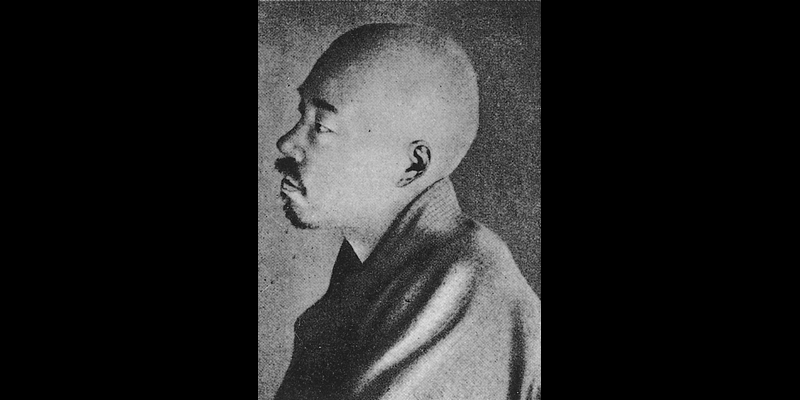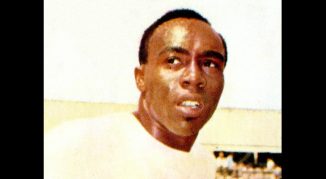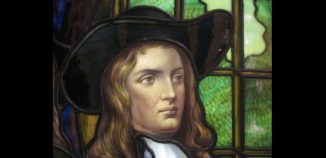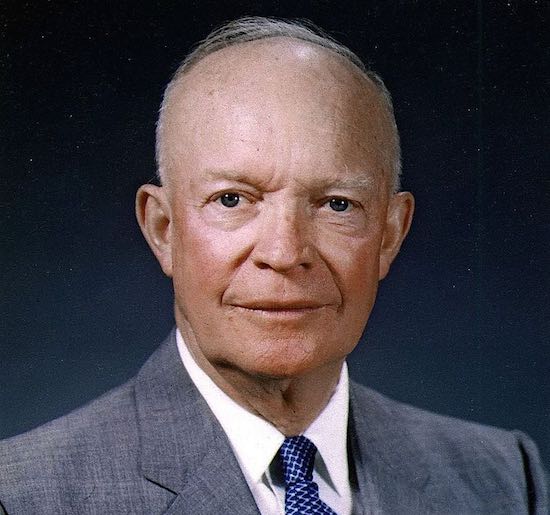157 years ago today, Masaoka Shiki, considered one of Japan’s four masters of haiku, was born. He wrote more than 20,000 stanzas of this famous Japanese short-form poetry, keeping the traditional ‘season words’ and the 5-7-5 syllable structure, but bringing in a dedication to realism that had seemed in through Western literature. Shiki may be credited with salvaging traditional short-form Japanese poetry and carving out a niche for it in the modern Meiji period. READ some of his verse… (1867)

Born into the late Meiji Period, Shiki entered into Japanese literary circles at a time when haiku and tanka poetry were already significantly in decline. Literates believed they were out of touch with the advancements of the Meiji Restoration.
In 1892, the same year he dropped out of university, Shiki published a serialized work advocating haiku reform, Dassai Shooku Haiwa or “Talks on Haiku from the Otter’s Den”. A month after completion of this work, in November 1892, he was offered a position as haiku editor in the paper that had published it, Nippon, and maintained a close relationship with this journal throughout his life.
He died of tuberculosis, a disease which had always had but never properly addressed, at age 34.
For love and for hate
I swat a fly and offer it
to an ant.
blooming azaleas
in a hollow on a cliff
a Buddha stands
looking down I see,
cool in the moonlight,
4000 houses
More Good News from this day in History:
- The children’s book Winnie-the-Pooh, by A. A. Milne, was published (1926)
- 300 escaped Germany’s Sobibor death camp in occupied Poland during a revolt that killed eleven SS guards (1943)
- District of Columbia Bar Association voted to accept black members (1958)
- Martin Luther King, Jr. became the youngest recipient of the Nobel Peace Prize (1964)
- The first Gay Rights March on Washington, D.C., drew 200,000 people (1979)
- Burmese opposition leader Aung San Suu Kyi won the Nobel Peace Prize (1991)
- Palestinian leader Yasser Arafat won the Nobel Peace Prize along with Israelis, Rabin and Peres (1994)
12 years ago today, Australian daredevil Felix Baumgartner successfully completed a skydive to Earth from a hot air balloon in the stratosphere. The Red Bull Stratos project saw Gartner free-fall 24 miles (39 kilometers) down to New Mexico for a total time of about 10 minutes. The jump went proper viral around the world, with hundreds of millions of views on their videos.

Reaching 1,357.64 km/h (843.6 mph)—Mach 1.25—Baumgartner broke the sound barrier on his descent, becoming the first human to do so without any form of engine power.
Jonathan Clark, medical director of the project, said: “We’ll be setting new standards for aviation. Never before has anyone reached the speed of sound without being in an aircraft. Red Bull Stratos is testing new equipment and developing the procedures for inhabiting such high altitudes as well as enduring such extreme acceleration. The aim is to improve the safety for space professionals as well as potential space tourists.” (2012)
Happy 85th Birthday to Ralph Lauren, the fashion designer, philanthropist, and billionaire businessman who was born in The Bronx to Russian immigrants. He went to college to study business but dropped out after two years and served in the US Army before becoming a salesman for a tie company.
At 28, Lauren convinced the company’s president to let him start his own line—and the Ralph Lauren Company was launched in 1967 with men’s ties.

He remains executive chairman and chief creative officer and celebrated the company’s 50th anniversary in 2018. This year, the Ralph Lauren brand collaborated with Major League Baseball to feature some of baseball’s most iconic teams—the Yankees, Dodgers, and Red Sox—on caps, jackets, and shirts inspired by Lauren’s lifelong love of the sport (1939)

From 1989 to 2016, Lauren co-founded 3 breast cancer centers—one at Georgetown University Hospital, one in Harlem, and the Royal Marsden, the largest and most comprehensive cancer research center in Europe. He also gave $10 million in 1998 to preserve ‘The Star-Spangled Banner’, the original 1813 flag that inspired Francis Scott Key to write what became the U.S. National Anthem.

On this day in 1968, American sprinter Jim Hines became the first human to run a 100-meter race in under 10 seconds (9.95). What was once thought to be impossible suddenly became possible—and soon it became routine—because the psychological barrier of unattainability was dissolved.
Jim held the 100-meter world record for 15 years after breaking the 10-second milestone at the US national championships, and later won two gold medals in the ’68 Olympics. In later years Hines worked with inner-city youth in Houston. He turned 75 in September. (1968)
On this day 380 years ago, the Quaker who was an early advocate of religious freedom and democracy in the U.S. colonies, William Penn, was born.

Under his direction, the city of Philadelphia was planned and developed. Penn wrote about and advocated for the union of all the English colonies in what was to become the United States of America. The democratic principles that he set forth in the Pennsylvania Frame of Government served as an inspiration for the United States Constitution.
The land of Pennsylvania was awarded, by charter from England’s Charles II in 1680, to William Penn, with the name derived to honor Penn’s father’s plus ‘sylvania’, meaning woodlands. Penn had earlier been imprisoned in the Tower of London due to his nonconforming Quaker faith—one of the reasons he proposed the emigration of English Quakers to leave England—and his agitating book No Cross, No Crown, written while in prison, has become a Christian classic. (1644)
And, 134 years ago today, Dwight D. Eisenhower, the 34th US President and Commander of the European Allied Forces in WWII, was born in Kansas. Nicknamed “Ike”, he was voted Gallup’s most admired man twelve times, achieving widespread popular esteem both in and out of office as one of the greatest US presidents. 
Here are some of the reasons… He was a moderate conservative who continued New Deal agencies and expanded Social Security. He launched the Interstate Highway System and sent federal troops to Little Rock, Arkansas to enforce an order that allowed blacks to attend public schools. He also signed voting rights legislation and desegregated the armed forces.
In his farewell address to the nation, Eisenhower expressed concern about the dangers of corporate control of Congress and massive military spending with government contracts to private military manufacturers, coining the term “Military-Industrial-Congressional Complex”, which you can learn more about in these books and videos. WATCH a short bio… (1890)
SHARE the Milestones and Memories…




















[…] post Good News in History, October 14 appeared first on The Good News […]
[…] By Good News Network […]